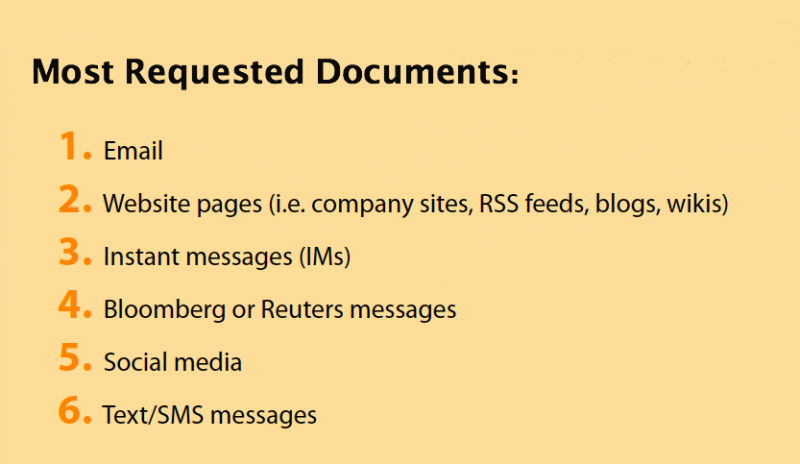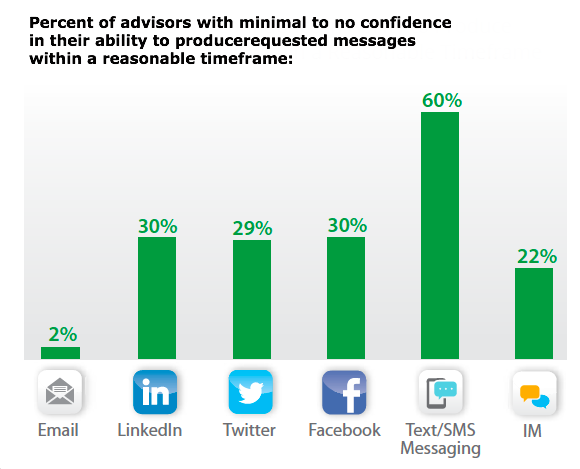Regulators are increasingly requesting a wider range of communication records from firms when conducting a regulatory exam. And while email is still by far the most commonly requested communication records, that is quickly changing, says Smarsh CEO Steve Marsh.
About 77 percent of advisors say that regulators requested email data during a recent examination, according to Smarsh’s 2015 Electronic Communications Compliance Survey. Smarsh’s data is drawn from a recent survey of 274 individuals in financial services, over 60 percent of who identified as working for an RIA, while 38 percent of respondents said they worked for a broker/dealer.
 Just two years ago, website requests were the top-requested data format, Marsh says, although this year only about 40 percent of advisors say examiners have requested this information. “Examiners are just trained to go in there and ask for the same things,” Marsh says, noting many times examiners simply request all archived communications without specifying which format.
Just two years ago, website requests were the top-requested data format, Marsh says, although this year only about 40 percent of advisors say examiners have requested this information. “Examiners are just trained to go in there and ask for the same things,” Marsh says, noting many times examiners simply request all archived communications without specifying which format.
But over the next two to three years, Smarsh believes that is going to shift toward digital communications such as social media posts and text messages. “I think it’s just a matter of time before they start asking for text messages,” he says. “The younger generation is using text more than email. All the good stuff is there.” According to Smarsh's survey, 85 percent of investors own and use a smartphone regularly and 20 percent of investors under the age of 45 expect to be communicating with their advisors via text within five years.
But the inability by the many of the firms to capture and archive these types of communication could also be playing into regulators’ slow adoption. According to the survey, only 5 percent of respondents had text message oversight solutions. Yet 69 percent of firms reported allowing allowing their employees to use text messaging for business communications.
“The fact that everyone uses it, and the fact that it’s not being captured, not being produced adequately, is alarming,” Marsh said.




